by Ada Bronowski
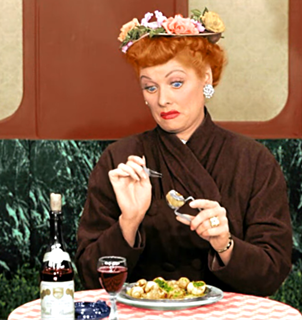
Why celebrate first times? If, admittedly, from the first time you have sex to the first time you taste escargots à la bourguignonne, hear Allegri’s Miserere or read Dostoevsky’s Demons, you, personally, undergo internal cataclysms which change you permanently, are not these moments blatant gulfs of ignorance and inexperience that you thankfully succeed in filling and should feel shame and embarrassment, if anything, about not having gotten done before? There always is a before, and the first time for you is the last for everyone else. So why do we nevertheless persist in sacralising first times both for ourselves and others?
One answer is that it is easier. It gives a fast-track meaning to our individual lives. First times map out each of our individual paths in life, fixes down memories and, with hindsight, provides us with explanations for our actions and more often than not, for our failings. But such doting smacks ultimately of self-indulgence, turning into meaningful exploits, essential steps required of us in order to realise our humanity – a task set upon all of us whether we like or not.
When Aristotle suggested that the way living beings are immortal is through the perpetuation of the species, he spelt out a hope and a burden. The hope that what individuals achieve in their short lives, lives on after them through the generations to come, like Archimedes’ eureka moment when he discovered the equal weight displacement in water of a solid body – no one after him can claim eureka about that: once discovered forever treasured. But it is also a burden: for every generation of the species has to catch up with everything that was done before, if it is to claim its right to the name of that species. And that is why the immortality of man is set apart from that of all other living species. For all other animals, the hope and the burden of immortality are one and the same: to survive, from sea turtles to sloths or canaries, animals must, but also cannot but, live up to all the promise of their species.
For humans, it is a different matter, a far more perplexing matter. For the gulf between the hope and the burden gapes wider generation by generation. And so it became a solution, that of pretending that there is something special for individuals to find things out (or not) all over again for themselves. The idea of virginity – of a purity deprived of the hope and burden of the immortality of the species – became, from a deficiency, a hallowed and enshrined state. Leaving such a state behind became in itself a hallowed moment, as the sacrality of virginity gives momentousness to its consummation.
But where do we place the purity bar? For if we fail to experience certain things, aren’t we then deficient and under-developed, as if we had failed to take our first steps within our early years of life?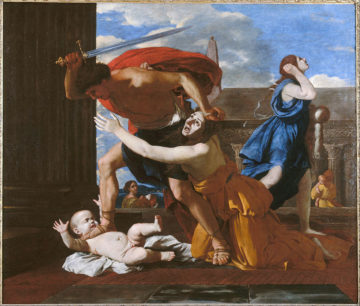 Is a toddler on all fours more pure than the one who’s gotten up on his two feet? Just as we forget that moment in which we first fully became bipedal, should we not also forget every other first time as just as many steps up the ladder to fully becoming a human being, and earning our right to be part of the species? Since we are born to become who we are, as Nietzsche says, and to become who we are, we need to wake all that is dormant in us, as Aristotle says, life can only be about getting first times over and done with as quickly and in as great a quantity as possible.
Is a toddler on all fours more pure than the one who’s gotten up on his two feet? Just as we forget that moment in which we first fully became bipedal, should we not also forget every other first time as just as many steps up the ladder to fully becoming a human being, and earning our right to be part of the species? Since we are born to become who we are, as Nietzsche says, and to become who we are, we need to wake all that is dormant in us, as Aristotle says, life can only be about getting first times over and done with as quickly and in as great a quantity as possible.
We are born not so much with a blank slate for a mind but, something more like Basil Fawlty’s Swiss Cheese theory:
– ‘What, hard?
– No no, full of holes.’
Soft, stupid and full of holes, our sole aim in life should be to fill up as many of these holes as we can. There is nothing laudable nor sacred in someone who has not read Dostoevsky yet. And there is nothing to praise or celebrate once that person has done so. What there is is for them, the relief (coupled with shame-with-hindsight) to now know something like that exists, and the empowerment gained from a new possibility of reflecting on life. As for everyone else, there is simply the possibility of having a slightly better quality of conversation.
It is no different with sex. If there is a necessary biological maturity to have acquired in the coordination of mind, nerves and imagination before approaching Dostoevsky, seeing Venice or savouring wine, it is the same for sex. And yet we speak of ‘losing one’s virginity’, as if sexual purity were a possession which we no longer have. A lack has become a possession. Is there something precious in not having seen Venice? What do you lose when you read Dostoevsky? When Mozart first heard Allegri’s Miserere at Saint Peter’s in Rome on the Easter of his fourteenth year, did he regret the time he had not? Everything points to the contrary as he ran home and transcribed from memory what he had heard (the score being forbidden from circulation and the piece itself performed once a year at Easter only). To hear it over and over, make it his and catch up on all that lost time, Mozart wrote it down – the ultimate stain on one of the most exquisite hymns to purity. Virginity down, genius, another step up.
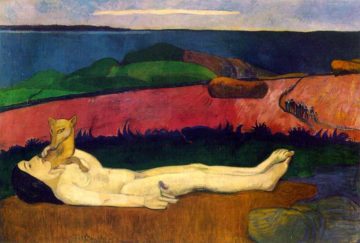
Democritus, the Greek philosopher, could sense the change in the very configuration of the atoms, as he greeted a young maidservant one morning with ‘Good morning Miss’, and the following day, with a ‘Good morning Madam’. The maidservant had indeed been seduced – or rather as the original Greek forcefully suggests, ‘had been ruined’ – in between and the atoms had changed place. But did this new atomic configuration differ in its novelty from the reconfiguration that any kind of change would induce in the life of the maidservant? She was in the employment of Hippocrates – of medical oath-swearing fame – and would have had the opportunity, we may suppose, to witness quite a few (gruesome) life-changing sights, as Hippocrates’ own descriptions of the symptoms of typhoid and haemorrhoids suggest. Is the first time you have sex more atom-changingly cataclysmic than the first time you see a putrefying dead body? If we have preferences for the one rather than the other, that is confusing pleasure with knowledge.
Atomisation is a great equalizer. Nothing is more or less important than something else, indeed nothing is important, since everything is atoms, moving through the void. Of course, we can turn things round: everything is void with atoms milling around through it. And holes have their own metaphysics: immaterial objects exist! Holes matter too, as the wonderful philosopher Achille Varzi, (from Columbia University) once tried to prove on national tv.
But even he cannot deny that a hole is existentially dependent on a surrounding material host, which means that matter matters more! Even if things would not be the same without their holes, witness donuts and tunnels, and indeed Swiss cheese[1]. But if Emmental would not be Emmental without its holes, the great difference between inanimate objects and the vibrant living, between the quick and the dead, is that our very lives rely on constant – however Sisyphean – attempts to fill the voids in us. If nature ‘abhors the void’ as Aristotle says, it is because nature is forever on the move, lest it crumbles. Static is death. And yet, with such optimistic, dynamic views about life, we have also managed to exalt its negativities, glorify its moments of void in a celebration of arrested developments which we have alchemically transformed from a deficiency into a cherished – even sacralised – value. That thing, the possession of a void, had and lost, we have come to call it innocence. And we have come to make a great deal of its loss.
In an open letter to Romain Rolland, Freud remembers thirty years after it happened, in 1936, the first time he saw the Acropolis, in 1904, age forty-eight: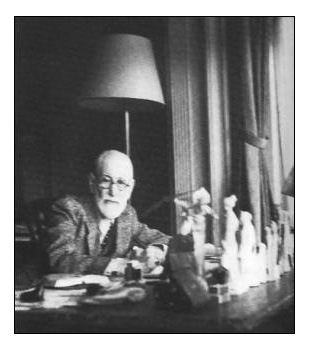
‘a surprising thought suddenly entered my mind: ‹‹So all this really does exist, just as we learnt at school! ››’[2]
This reaction is puzzling to Freud: not pleasure, not admiration, but a bewilderment that Freud analyses as part betrayal of the past and part guilt. The problem is not that as a child he had not believed his textbooks and in fact doubted the existence of the Acropolis, but rather that he had thought that he would never get to see the Acropolis. He had, therefore, as a child, ‘de-realised’ it, turned it into an impossible dream. Now, standing on the steps of the Parthenon, Freud has betrayed that state of innocence, which was a blissful disbelief in the possibility of realisation.
This invention of a child’s fantasy of disbelief is blatantly a creation by a troubled adult, of a time of innocence that never existed. Innocence is an idea we create for ourselves, to explain to ourselves why we are not happy. Freud helps us focus the criteria for it: innocence is to believe in impossibility. Quite the opposite of the hopes and dreams youth is generally associated with. When Keats is filled with ‘wild surmise’ , ‘On first looking into Chapman’s Homer’, soaring to undreamt of heights, where ‘planets swim’, Freud’s lesson is to anticipate Icarus’ fall: and then what?
What we cannot accept about first times is that they blow the bubble of the impossible. Nothing we thought was impossible, is in fact impossible, and so, all the more work for us. But as long as we can brainwash ourselves with beliefs in the impossible: the impossibility of such beauty (the Parthenon), of such pleasure (sex), of such horror (war, terrorist attacks), we can wallow in dreams of innocence… with hindsight. There is a palce where all these things are impossible. There we are safe, and need not make any efforts or feel disappointment in failing to experience them.
Freud is a great promoter of the sacrality of first times and of virginity as the fabrication of a dream-point of origin to return to. Perhaps all of psychoanalysis revolves around the construction of the fantasy of first times. In this, Freud renews with the 18th century and in particular Jean-Jacques Rousseau, the fanatic ideator of a pure origin of man in and with nature. For Rousseau, it is society which corrupts individuals, laws that degrade the natural good-will of human beings. To rediscover lost innocence, we must retreat within ourselves. Thus, in The Reveries of the Solitary Walker, self-knowledge is heralded as the key to unlocking our pure ‘sensitive souls’ (‘âmes sensibles’).
If Rousseau opened the gates to Romanticism, those gates were shut again by the time Freud began his great enterprise. In between, from Baudelaire to Dostoevsky or Edgar Allan Poe, there came the slow and cruel realisation of the illusion of such a goal: there is no âme sensible but rather an infinite variety of âmes monstrueuses, monstruous souls. The zen-like static tranquillity, the energy-less ideal, which Rousseau anticipates as the landscape of innocence is nowhere to be found, instead there is only the organic monstrosity of human nature, made up of all that has been seen and done before us. Where Rousseau was sincere in his quest for innocence, Freud could no longer be so, but (hypocritically?…) turned the illusion itself into a quest. And so Rousseau finds himself at the origin of a poly-cephalic hydra: one of his fervent followers, the Marquis de Sade took the quest for innocence to legitimise the objectification of the virginal body, whereas Freud turns the quest inwards, towards the illusion of a virginal mind.
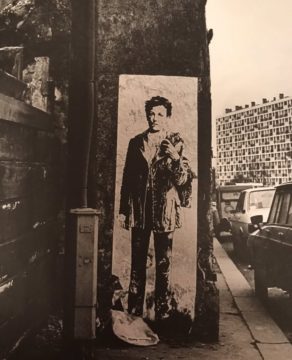
Arthur Rimbaud’s ‘I is another’ (‘Je est un autre’) captures perhaps in all its lucid despair the nature of the monstrosity self-knowledge reveals. It is the horror of not being alone in there – not really being oneself at all in fact; but realising one has always been invaded, occupied by everyone else apart from oneself. Where does this leave innocence? purity? virginity? Rimbaud is perhaps the last Mohican, torn between a Rousseauvian childish wish for the preservation of an island of purity: his poetry is traversed with appeals to virginity from his early poem (29th April 1870), ‘Soleil et Chair’ (‘Sun and Flesh’) where he invokes primordial Man as ‘chaste and sweet’ (‘chaste et doux’) to his late (1873!) ‘Bad Blood’ (‘Mauvais Sang’), a section of A Season in Hell, in which he genealogises over his own Gaul’s blood, searching desperately for a moment of innocence back in time. But by the 27th July 1870, in the extraordinary poem ‘Venus Anadyomène’, the dream of purity is proven to be just that, a fantasy of virginity, in which Venus, who had been hailed as ‘ô Venus, ô Goddess’ in ‘Sun and Flesh’, appears now in the words ‘Clara Venus’ tattoed on an old prostitute’s backside, ‘hideously beautiful with an ulcer on her anus’. Hippocrates redivivus!
What does it mean? That between the end of Arpil 1870 when ‘Sun and Flesh’ was written, and the end of July 1870, when he wrote ‘Venus Anadyomène’, sixteen-year-old Rimbaud got a taste of something. It was bitter and horrible perhaps not so much in itself but in that it revealed how stupid he had been to think of chastity and innocence as a reality worth yearning for.
In A Season in Hell, Rimbaud creates the character of the ‘crazed virgin’ in the eponymous section ‘La Vierge Folle’: this insane virgin personifies at first Verlaine as their relationship is recognisably played out in a hallucinatory monologue. But as the reflections spin round, pursued along Rousseauvian strata of ever deepening self-introspection, the crazed virgin becomes Rimbaud himself. It is the idea of virginity which is insane and renders insane the virgin who possesses nothing, and yet holds on to his-her shreds of nothing as though it were a possession.
In short Rousseau was right to send his five children to an orphanage and wrong to write Emile. In the book, he projects an ideal education based on the natural goodness of the child of man. But in reality, since there is no such innocence, there is nothing to save and you might as well sell your children or get rid of them in the most expedient way possible. You cannot save what is unsalvageable. It is wrong therefore to blame Rousseau, he was in fact supremely consistent with himself. First times, innocence, virginity, like happiness and the possibility of a good life belong to Rousseau’s favourite holiday resort: le pays des chimères, the land of chimeras.
Undeniably however, Rousseau’s vision, his fantasy of virginity continues to be the dominant view of our times. How we could all calm down a little if we could only really take in that it’s all nothing but a displacement of atoms?…
[1] R. Casati and A. Varzi. Holes and Other Superficialities, Massachusetts: MIT Press, 1995.
[2] S.Freud, ‘A Disturbance of Memory on the Acropolis: an open letter to Romain Rolland on his 70th birthday’ (1936), The Standard Edition, vol.22, p239-248, online here.
